Your brain is your most complex and vital organ, tirelessly managing everything from memories and emotions to basic survival functions. But what happens when your brain’s health starts to falter? From mild forgetfulness to serious cognitive decline, maintaining optimal brain function has become a growing concern for people of all ages.
Enter lithium—an unassuming mineral with extraordinary benefits for brain health and cognitive performance.
Lithium, often misunderstood as solely a pharmaceutical treatment for bipolar disorder, is now being recognized in the world of Functional Medicine for its neuroprotective properties. At low, nutritional doses, lithium supports brain resilience, improves memory, and may even reduce the risk of neurodegenerative conditions like Alzheimer’s and Parkinson’s.
With its ability to protect neurons and boost cognitive function, lithium is proving to be a vital, natural ally in preserving brain health throughout your lifetime.
The Brain’s Challenges in Modern Living
Our brains weren’t exactly built for today’s fast-paced, high-stress world. Between information overload, environmental toxins, and chronic stress, cognitive health is facing more challenges than ever.
It’s no surprise that so many people struggle with brain fog, forgetfulness, and even early signs of cognitive decline.
Neurodegenerative diseases like Alzheimer’s and Parkinson’s are on the rise, but even those without a formal diagnosis often experience memory lapses and mental fatigue. Stress plays a huge role, increasing inflammation and disrupting the brain’s ability to repair itself. Poor diet, lack of sleep, and environmental toxins only add fuel to the fire.
But here’s the good news: the brain is remarkably adaptable.
It has built-in mechanisms to repair and protect itself—when given the right support. And one of the most overlooked tools for brain health?
A simple, naturally occurring mineral called lithium.
Lithium’s Role as a Neuroprotector
Lithium isn’t just for mental health conditions—it’s a powerful protector of brain cells. One of its key roles is regulating an enzyme called glycogen synthase kinase-3 (GSK-3). When GSK-3 is overactive, it can contribute to the formation of beta-amyloid plaques and neurofibrillary tangles, two major culprits in Alzheimer’s disease.
By keeping GSK-3 activity in check, lithium helps prevent these harmful changes, essentially protecting the brain from the inside out. Research has shown that even at low doses, lithium can reduce brain inflammation and promote cell survival, making it an important player in long-term cognitive health.
Enhancing Cognitive Function with Lithium
One of lithium’s most exciting benefits is its ability to boost brain-derived neurotrophic factor (BDNF). Think of BDNF as the brain’s personal repair crew—it encourages the growth of new neurons, strengthens existing connections, and enhances learning and memory.
Higher BDNF levels have been linked to better cognitive function, improved mood, and even a reduced risk of depression and dementia. Animal studies and human trials alike show that lithium supplementation can improve memory recall, learning speed, and overall mental sharpness.
Preventing Age-Related Cognitive Decline
Aging is inevitable, but cognitive decline doesn’t have to be. Studies have found that low-dose lithium can help slow, and in some cases, even prevent the onset of dementia. One long-term study followed older adults over several years and found that those with higher lithium intake had significantly lower rates of cognitive decline.
Lithium also plays a role in repairing damaged neurons and increasing gray matter density, which is essential for maintaining memory and executive function as we age. Some researchers even refer to lithium as a “brain fertilizer” because of its ability to promote cell regeneration and keep the brain structurally healthy.
Practical Considerations for Supplementing Lithium
If you’re thinking about adding lithium to your cognitive health regimen, here are some key things to know:
- Dosage Matters: Studies suggest that even trace amounts of lithium (1-5 mg daily) can provide neuroprotective benefits. Some individuals at higher risk for cognitive decline may benefit from slightly higher doses (up to 20 mg), but this should always be discussed with a healthcare provider.
- Natural Sources: Lithium naturally occurs in drinking water, particularly in regions with high mineral content. It’s also found in certain foods like grains, leafy greens, and some root vegetables. In fact, research has shown that populations with higher lithium levels in their water supply tend to have lower rates of neurodegenerative diseases and mood disorders.
- Who Should Consider Lithium? Individuals with a family history of dementia, high levels of chronic stress, or difficulty with memory and focus may benefit most from low-dose lithium supplementation.
The Bottom Line
Lithium might not be the first thing that comes to mind when you think about brain health, but the science is clear—it’s a powerful, natural tool for protecting and enhancing cognitive function.
Whether you’re looking to keep your mind sharp, support long-term brain health, or reduce your risk of age-related cognitive decline, this often-overlooked mineral deserves a place in the conversation.
The best part?
It’s safe, widely available, and backed by decades of research. Functional medicine is all about getting to the root of health issues, and lithium is proving to be a vital part of that process. So, if you’re looking for a simple way to support your brain, lithium just might be the missing piece of the puzzle.


